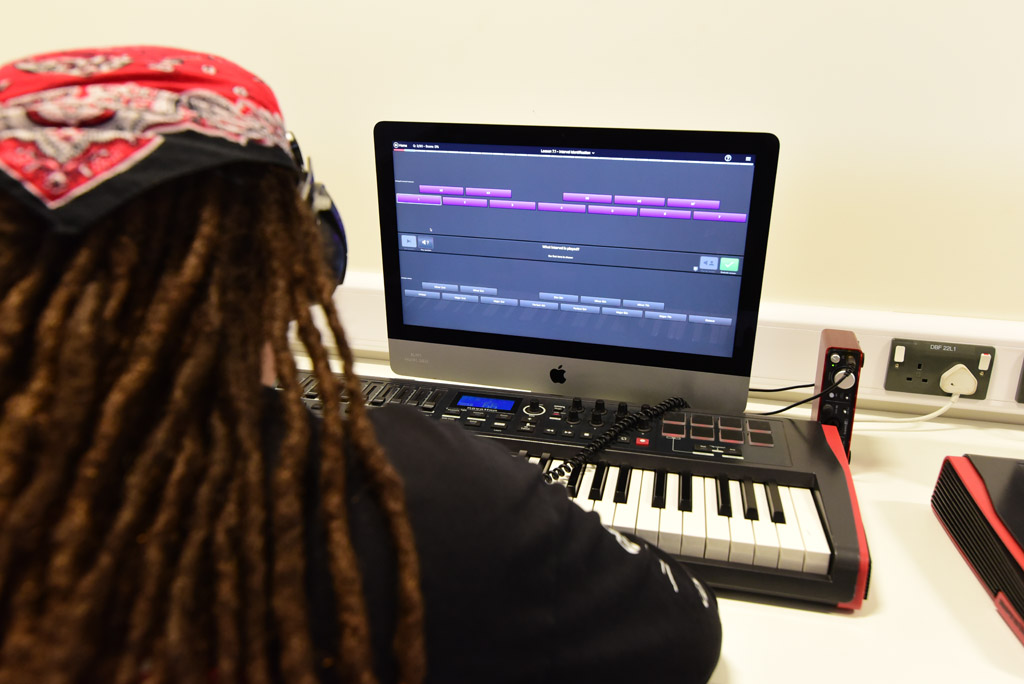UK’s leading popular music college, East London Arts and Music, paves new, innovative ways forward with implementation and use of EarMaster software
Description
ELAM believes in the holistic development of the next wave of industry-ready professionals. Musicianship lies at the core of ELAM’s music curriculum and, likewise, at the heart of a thriving Music industry. All trainees at ELAM, regardless on industry pathway (Artist, Business, Production, etc.) are required to independently work through and complete the ELAM Musicianship course, demonstrating competence in their aural perception skills over a two-year sequential learning journey. ELAM believes strongly in the fundamental skill of aural perception and invests time and money in the successful implementation and delivery of this unit through their innovative-use of EarMaster Cloud Software.
ELAM provides an amazing opportunity for young, talented people to realise their full potential the same way I did.
What is the context of the work?
East London Arts and Music (ELAM) is an Academy whose primary objective is to provide 16-19 year olds with a world-class education in, and exposure to the business, performance and technical aspects of the music and digital media industries. ELAM offers young people from a low-income background a vocational as opposed to purely academic path towards career progression and/or further education, while addressing a defined need for demographic change within the creative industries. ELAM is located in the London Borough of Tower Hamlets, one of the most deprived areas of the UK. ELAM is rated Outstanding across all categories by OFSTED.
ELAM’s Music Programme, serving a cohort of 75 trainees per year, focuses equally on developing ‘Expertise’ and ‘Personal’ skills areas. In addition to the educational program, ELAM students have unique access to a comprehensive program of masterclasses, mentorships and work experience facilitated by the ELAM team’s reputation within the music industry and established partnerships with leading organisations such as Universal Music, the BPI, 360 Management, Virgin, MTA Records and National Orchestra for All. Mentors all occupy relevant positions within the music industry, provide their services free of charge and are each allocated two trainees. Masterclasses have been provided by some of the leading musicians of the day, while each trainee is offered priceless work experience opportunities with industry partners. East London has become internationally synonymous with modern British music through the success of various local artists such as Plan B and Dizzee Rascal.
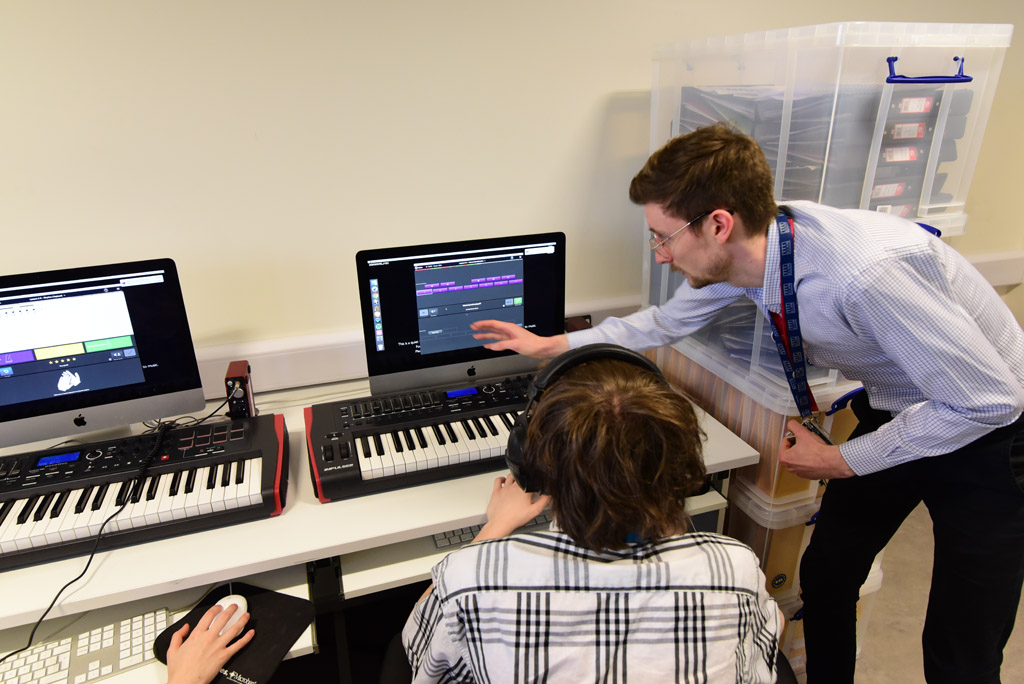
What is the content of the work?
The Musicianship unit is designed to target the development of ELAM trainee’s aural perception skills. Through engagement with EarMaster Software, trainees at ELAM develop their musical literacy and fundamental understanding of notation, sight-reading, and pitch and rhythmic discrimination skills. Further, trainees develop their understanding of key musical terminology, context and application.
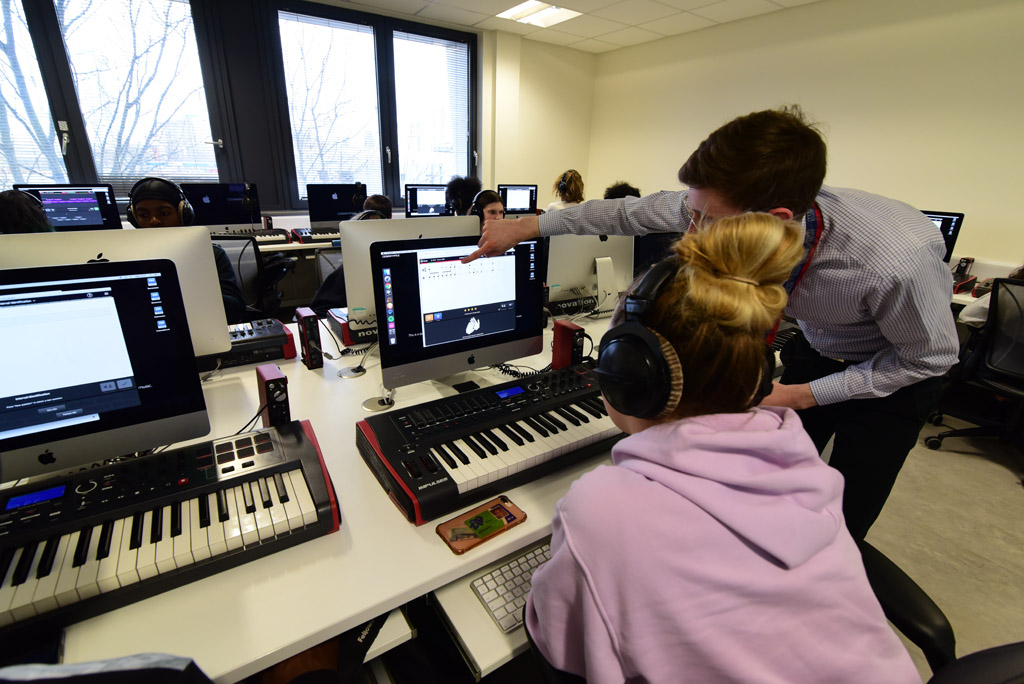
In addition to the musical advantages, the rigor and model of the Musicianship course at ELAM develops self-determination, drive and resilience within trainees, requiring them to analysis their own limitations, overcome barriers, and find new ways forward in both their understanding and skill.
What are the key features of the teaching and learning approach?
ELAM’s Musicianship unit provides trainees 1x50-minute EarMaster session per week. Four core pedagogical principles underpin the success of this program:
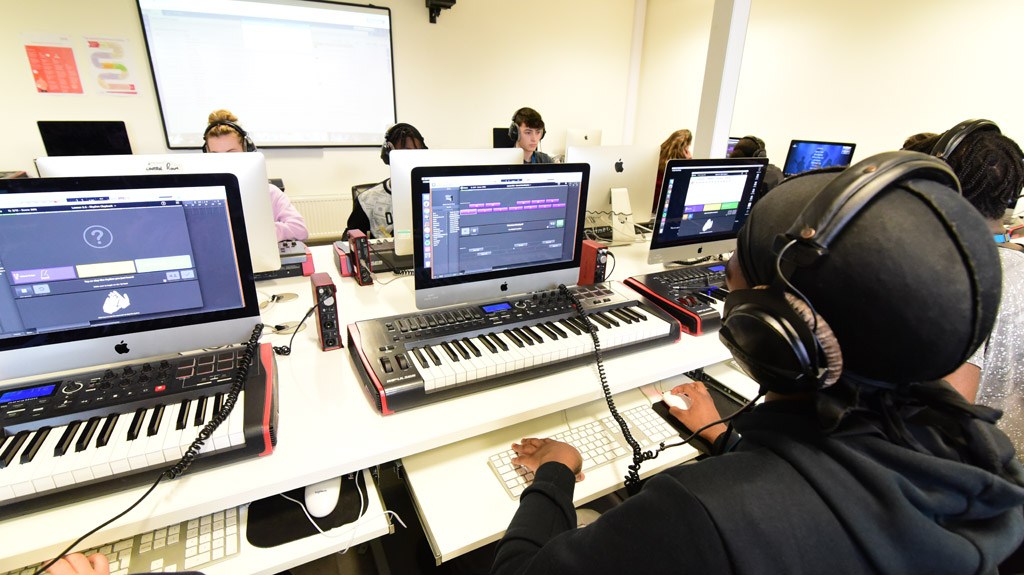
- 1. Sequential-Learning Journey: The ELAM EarMaster Course moves trainees independently through a journey from beginner, through intermediate, to advanced aural perceptions skills. This journey from fundamentals to advanced principles promotes inquiry-based learning and intrinsic motivation.
- 2. Discovery: Like a video game, trainees ‘discover’ new information, requiring them to ‘solve the puzzle’ and work out the way forward on their own. EarMaster offers built in instructional pages, links to further learning and repeats failed questions until trainees achieve mastery. The teacher (or learning guide), provides clues and encouragement through the journey to help trainees overcome obstacles and maintain focus and motivation.
- 3. Independence: Trainees work independently through a series of assigned lessons, setting individual targets, goals and meeting built-in milestones. The program does not include built-in competition, however, natural competition develops within the classroom setting, motivating trainees towards higher levels of achievement. Trainees are provided a Cloud EarMaster account and are able to access lessons both at ELAM or from home on any computer (PC/Mac) or iPad (mobile version coming soon!)
- 4. Differentiation: Trainees move at their own pace, based on prior knowledge and ability, through the ELAM EarMaster course and beyond to ‘industry-standard’ exercises. Further, EarMaster automatically tailors each question based on trainee understanding, frequent errors and ability.
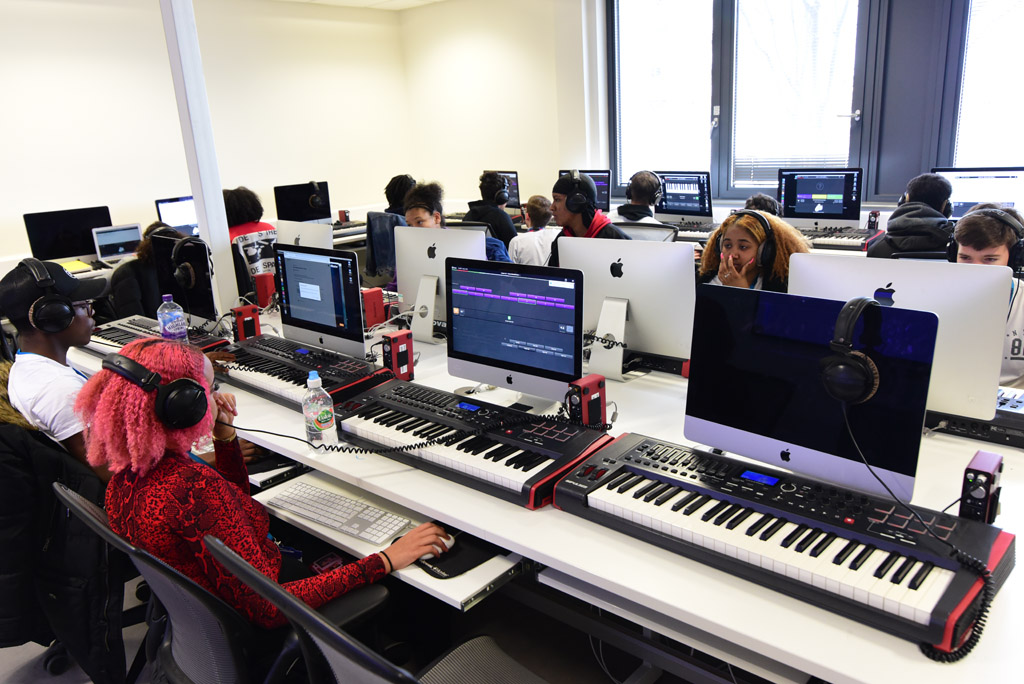
How is the work being reviewed?
The EarMaster Cloud Software tracks and measures progress data per trainee in a simple and understandable way. Further, EarMaster Software allows data to be exported to .csv format for further data analysis. ELAM maps progress data of trainees on a termly basis against baseline, projected grades to ensure progress is being achieved. Beyond specific summative milestone outcomes, ELAM also focuses its data analysis on soft skills, such as effort, time taken per question, and how often a trainee repeats an exercise. The teacher acts as a guide for trainees, using cognitive learning models to help trainees slow down, process their mistakes and successes to support their understanding of the process of learning. Targeting the learning methods from an early stage has proven to have significant impact on outcomes.
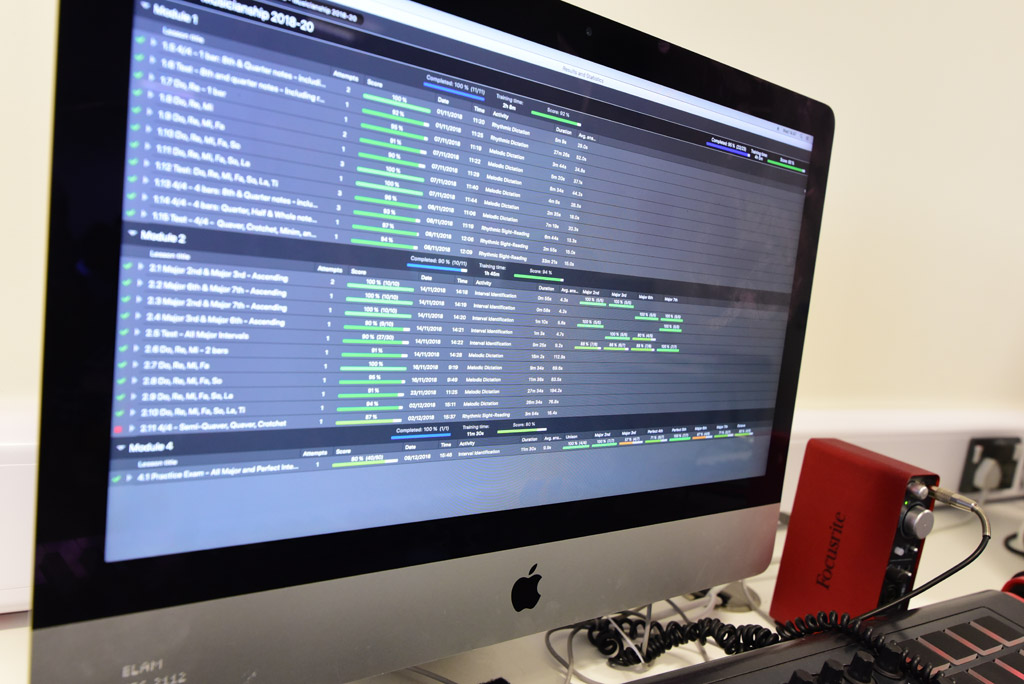
Reflection
Music learning
Trainees development and growth, supported by the Musicianship unit at ELAM, is both quantifiable and qualifiable. Evidence of learning and progress transcends lesson-by-lesson exercise completion data, and makes it way into the Live Rooms and Studios at ELAM. Trainees demonstrate and apply their aural perceptions skills daily, with increasing accuracy and complexity during their time at ELAM. Trainees reference concepts, skills and terminology learned on EarMaster across their Creative, Technical and Entrepreneurial units at ELAM. Quantifiable data is mapped across target grades and shows specific strengths and areas for improvement (ie. Rhythmic sight-reading, Pitch recognition, Triad identification, etc.). Learners are empowered through EarMaster with a user-friendly ‘results’ feature to constantly reflect and improve on their results.
Role of the Teacher
The role of the ELAM teacher in the Musicianship classroom is that of a learning facilitator or coach. The teacher focuses on behaviour for learning, maintaining high expectations of independence and focus within the session. Clarity of instructions and a clear routine is important to the overall success of this course. An additional key component of the teacher/facilitator is that of a pastoral figure. As trainees become frustrated with repeated failure, the teacher must know how to step in, directing them back to a “learning”, rather than “outcome” centric mindset. As discussed earlier, the teacher must be mindful of not allowing trainees to develop bad learning habits, but rather encourage trainees to engage with their mistakes, give time for processing of information and maintain focus on the key learning outcomes.
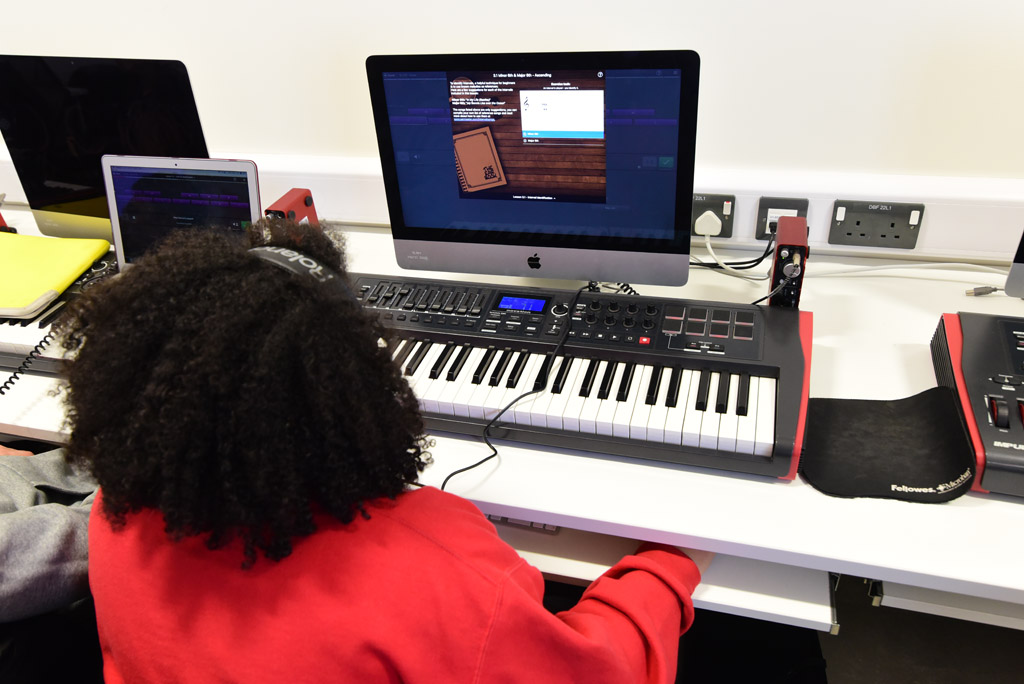
How replicable or adaptable is it?
Although ELAM is unique in it’s model and approach to industry-embedded learning, the Musicianship unit and use of EarMaster Software is easily replicable. Key principles and pedagogies of learning are combined to enable and inspire this trainee-led journey of musical improvement and discovery. The teacher requires basic knowledge and understanding of a typical learning sequence for aural skills development (See manual for ear training and sight singing - Gary Karpinski). An enthusiastic attitude and ability to set and maintain high standards of classroom behaviour and expectations is paramount.
Key ELAM Differentials
- Of the current trainee intake, approx 35% are eligible for free school meals (national average is 13.6%), underlining one of ELAM’s core objectives, while 43% had failed to achieve 5 A-C grades at GCSE including Maths and English before arriving at ELAM. Based on results achieved to date it is considered that ELAM trainees retaking GCSE Maths and English have an 80% chance of success (versus national average of 10%);
- ELAM addresses a specific demographic need within the targeted industries: for example, a recent study revealed that 60% of music chart acts had been educated at a private school compared with 1% at the same point twenty years previously. With only 7% of our children attending private schools this is a concerning statistic; unfair for many talented young people from low-income backgrounds and evidence of a clear wastage of talent and lack of diversity within the music industry;
- ELAM is currently one of a minority of Free Schools in the UK with a proven ability to meet its student capacity and operate with a financial surplus; demand for places at the school has soared in the last two years, with over 1000 applications received for the 75 places available for the current academic year.
- In its short existence ELAM has attracted very positive reviews and attention from the education authorities and the creative industries. The first cohort of ELAM Trainees graduated in July 2016 and on average made 0.42 grades better than the expected progress in their music qualification which is considered outstanding. The average grade achieved was a Distinction. Academic Results across Maths and English at AS and A Level have exceeded national expectations across all year groups. Importantly, ELAM teachers have identified a strong correlation between trainees realizing their music potential and showing a stronger commitment to the academic process.
- Three months after graduating, 98% of trainees are in some form of employment, education or training, while 70% have taken mission aligned positions, which are defined as positions we think will support them in becoming leaders of the creative industries in the future. e.g. BBC Radio 1 Production, Music courses at reputable universities (Leeds College of Music, Liverpool Institute of Performing Arts etc.) and Record and Publishing deals.
